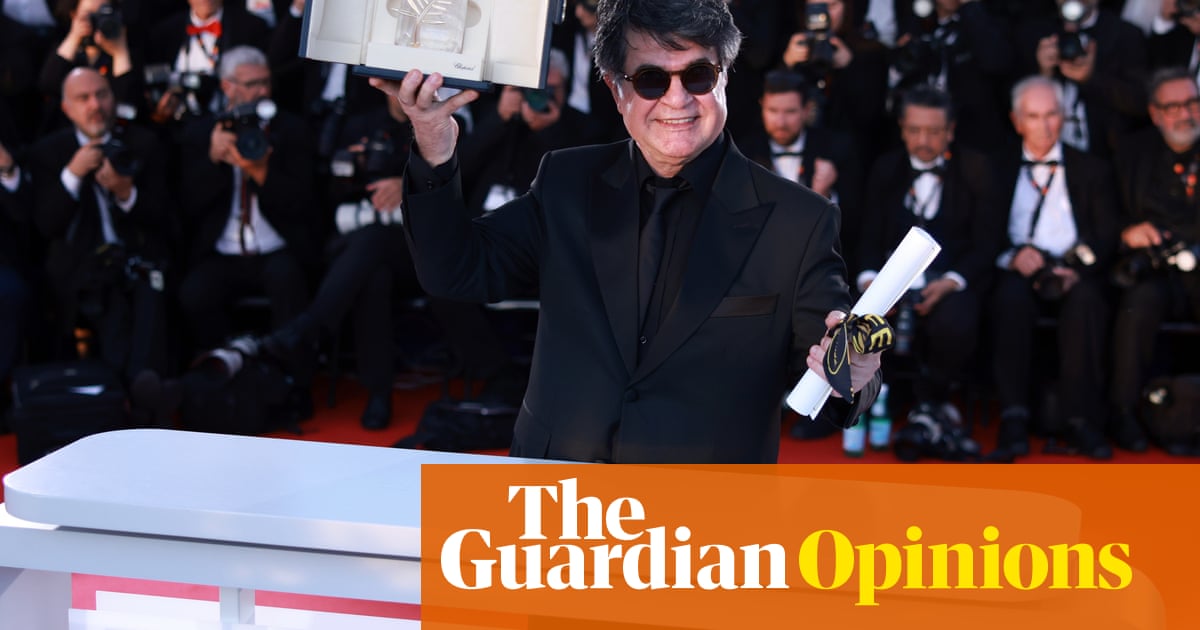In the end,the Cannes Palme d’Or went to the most courageous film director in the world. It was a very satisfying grownup decision, favouring a remarkable and utterly individual film-maker: the director and democracy campaigner Jafar Panahi, an artist who unlike any other director in the Cannes competition really has suffered, taken real risks for cinema and spoken truth to power – and endured arrest and imprisonment for his pains.
He has created a rich canon of work which has told the world about Iranian society and the Iranian mind with a subtlety and depth that we are never going to get from the TV news.
Thirty years ago, his directing debut, The White Balloon, won Cannes’s Camera d’Or for best debut and now he has triumphantly carried off the biggest prize at Cannes, having won the main awards at many other European festivals.It Was Just an Accidentis another of his humane, sharp, witty, seductively oblique and deeply engaged dramas which reveal how political oppression and political resistance is embedded into the everyday fabric of Iranian life.
In fact, it’s his most emotionally explicit movie yet, with an almost Hollywoodised premise: a garage mechanic has to repair a car belonging to someone who has just suffered an accident on the road and thinks he recognises him, a suspicion which causes him to reunite with a whole cohort of traumatised contemporaries. It’s the kind of political film which you might expect to see as a period piece, about a time and a place safely in the past. But no. It Was Just an Accident is happening right now.
Panahi has had the finger of theocratic disapproval wagged in his face for decades. In 2010 he was subjected to a six-year prison sentence and a 20-year film-making ban. In theory, his entire extraordinary career should have been mostly impossible.
But through a complex combination of protracted appeals, samizdat secret film-making in his apartment and sneaking films out of the country on flash drives, he has given us marvellous and much acclaimed work.
His Cannes prominence has made him, if not untouchable, then someone to be approached with caution, and the Iranian authorities are surely aware that Panahi and dissident Iranian cinema in general have (paradoxically) created international prestige for their country in a way nothing else could. At all events, we are always talking about film-makers showing “courage”. But for Panahi it really is true and this Palme is a wonderful victory for him.
As for the other prizes, I was just a little conflicted. I was sorry that Juliette Binoche’s jury couldn’t find a way to recognise the remarkable film-making of Sergei Loznitsa, with hisfierce vision of the Stalinist 1930s in Two Prosecutors, or the wonderful style of the Spanish directorCarla Simón in Romería– though her day in Cannes will surely come.
Joachim Trier’s big, heart-on-sleeve dramedy Sentimental Value, which won the Grand Prix (effectively the festival’s silver medal), was a crowd-pleaser, a critic-pleaser and a jury-pleaser. It is the story of an accomplished stage actor (played by Renate Reinsve) who is astonished to find on her mother’s death that the family home is still legally the property of her unmanageable old dad (Stellan Skarsgård), a failing movie auteur who abandoned his family but now wants to use it as the location for his new film and even cast his daughter in the lead role. I thought some of its effects were a little broad and self-indulgent but it really hit the spot with so many people at the festival.
For the bronze medal, the jury prize, I have very mixed feelings.Mascha Schilinski’s rigorously composed generational German drama Sound of Fallingis an outstanding film which deserves its joint win.
It shares this with Oliver Laxe’s Sirât, a strange, freaky, trippy tale of tragedy in the desert, about a father searching for his daughter; I didn’t go along with the saucer-eyed reverence for this film, which involved almost Pythonesque landmine explosions.
My own preference for the top prize had beenthe Brazilian film The Secret Agent by Kleber Mendonça Filho; this is an amazing epic about a man challenging the system and trying to get out of the country with his son during the 1970s dictatorship before he can be killed.
As it transpired, it got best director for Filho and best actor for the formidable Wagner Moura, who also plays the grownup son in the present – a stylish extra dimension to his performance that might well have clinched it for Binoche’s jury.
The best actress prize (which so many thought would go to Jennifer Lawrence for her fascinating, almost Cassavetes-esque turn as the woman suffering postnatal depression inLynne Ramsay’s Die, My Love) in fact went to some of the most unshowy, almost self-effacing acting in the festival: Nadia Melliti, forthe queer Muslim coming-of-age drama The Little Sister.
This was a film which perhaps did not hit it out of the park, but it was good to see the Cannes jury rewarding something other than obvious acting pyrotechnics. (My choice, for what it’s worth, was Yui Suzuki for the Japanese film Renoir, an excellent piece of work unfairly overlooked in Cannes.)
But 2025 was Panahi’s Cannes. It’s been a long time coming.
